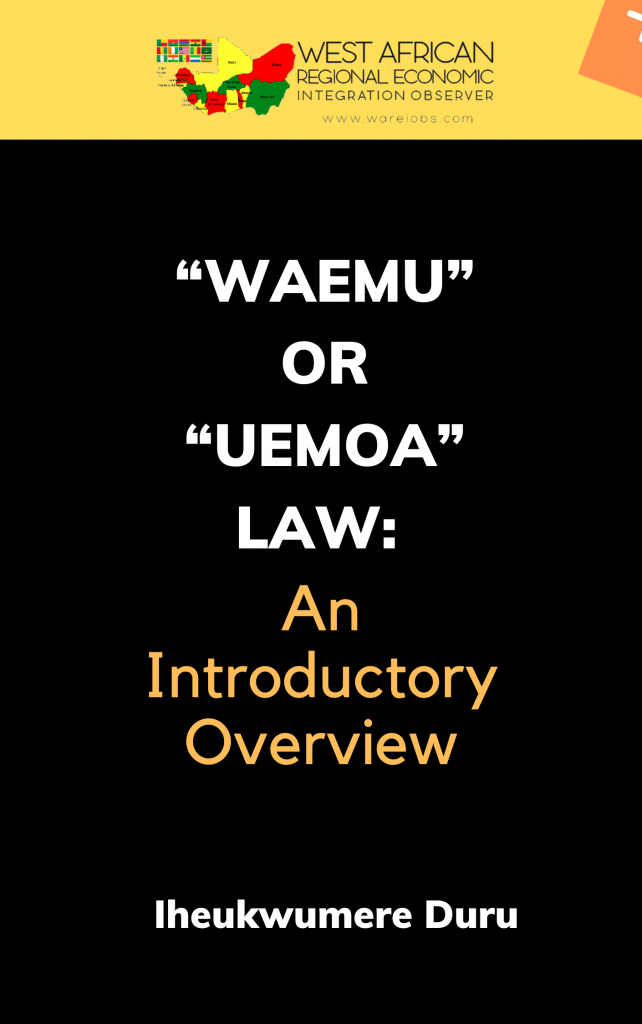Welcome to the official website of
West African Regional Economic Integration Observer
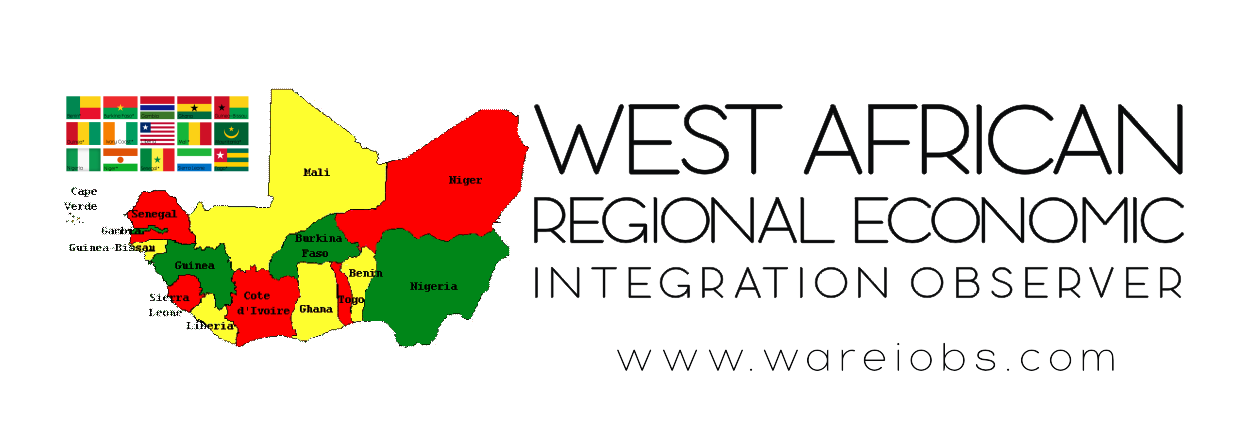
Born out of the research findings of the Publisher, WEST AFRICAN REGIONAL ECONOMIC INTEGRATION OBSERVER (wareiobs.com) aims to contribute to the reinforcement of the process of economic integration in the West African region through the promotion of ECOWAS law and the monitoring of developments in this domain.
ECOWAS law is meant to be a “community law” i.e. a body of law that governs the activities of an economic community, in this case the Economic Community of West African States, and which is distinct from “ordinary” international law or domestic law. However, some of the basic principles and rules of community law do not seem to have been integrated into ECOWAS law as is evidenced by the manner in which it is applied in the Member States. These include the cornerstone principle of supremacy of community law over any conflicting national law, even if adopted subsequently, the principle of direct effect, the rule according to which national courts are responsible for the enforcement of community law at national level, under the supervision of a community court of justice – which is not a court of appeal for Member States -, as well as the rules governing the entry into force of community treaties.
These principles and rules are necessary for the proper functioning of an “integration organization”, for the achievement of objectives like those set out in ECOWAS treaties. They cannot be overlooked without the legal basis of the community itself being called into question. If ECOWAS is to function in a manner compatible with the concept of ”economic community”, designed to achieve, among other things, market integration coupled with free movement of persons, residence and establishment as envisaged by the relevant ECOWAS protocols, and not like an ordinary intergovernmental co-operation organization, it is imperative that the fundamental rules of community law be understood and applied in all the Member States. As part of its objectives, therefore, the Website will try to explain them with a view to facilitating their integration into ECOWAS law, enhancing the effectiveness and the status of the latter.
The Website also aims to offer possible practical answers to the most frequently asked practical questions on ECOWAS law. It is intended for anyone interested in ECOWAS law the effective implementation of which is crucial to the achievement of the noble objectives of the Community. Naturally, persons interested in the practice of other African Regional Economic Communities (RECs) will also find it useful, not least because those RECs experience the same issues as ECOWAS.
Contributions, on a pro bono basis, from lawyers, academics, civil servants and other stakeholders, in English or French, are welcome, provided that they are in line with the aims and objectives of the Website and that the authors adhere to the generally accepted ethical values. The views expressed in a contribution do not in any way represent those of the Publisher, but those of the author. There is always room for improvement. Comments, suggestions and advice with regard to the Website itself or the contents are most welcome.
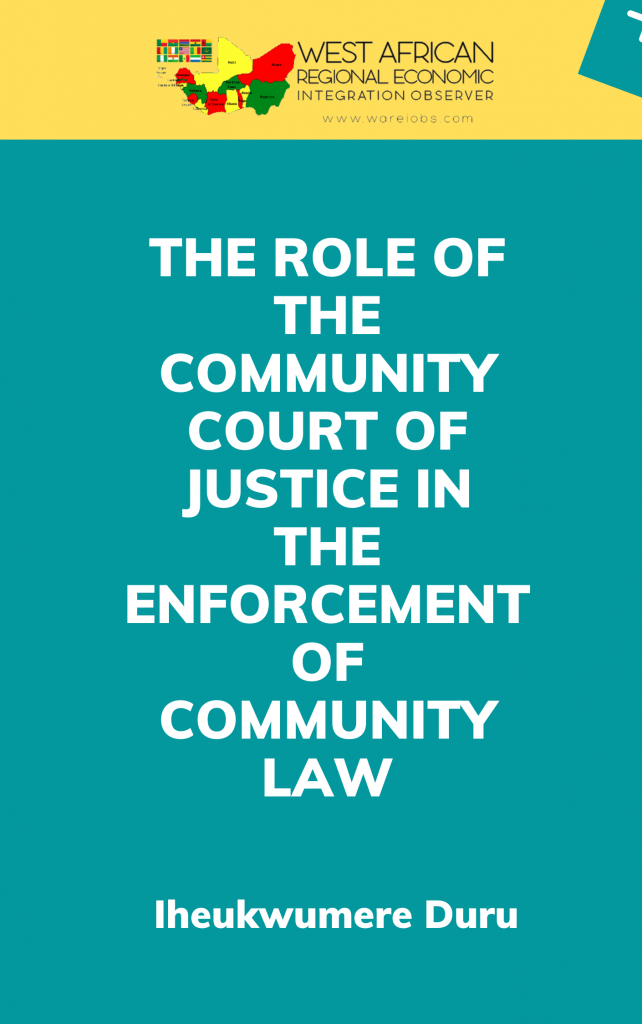
![The Role of National Courts and Tribunals in the Enforcement of Community Law [3]](https://wareiobs.com/wp-content/uploads/2021/05/The-Role-of-National-Courts-and-Tribunals-in-the-Enforcement-of-Community-Law-3-2-642x1024.png)
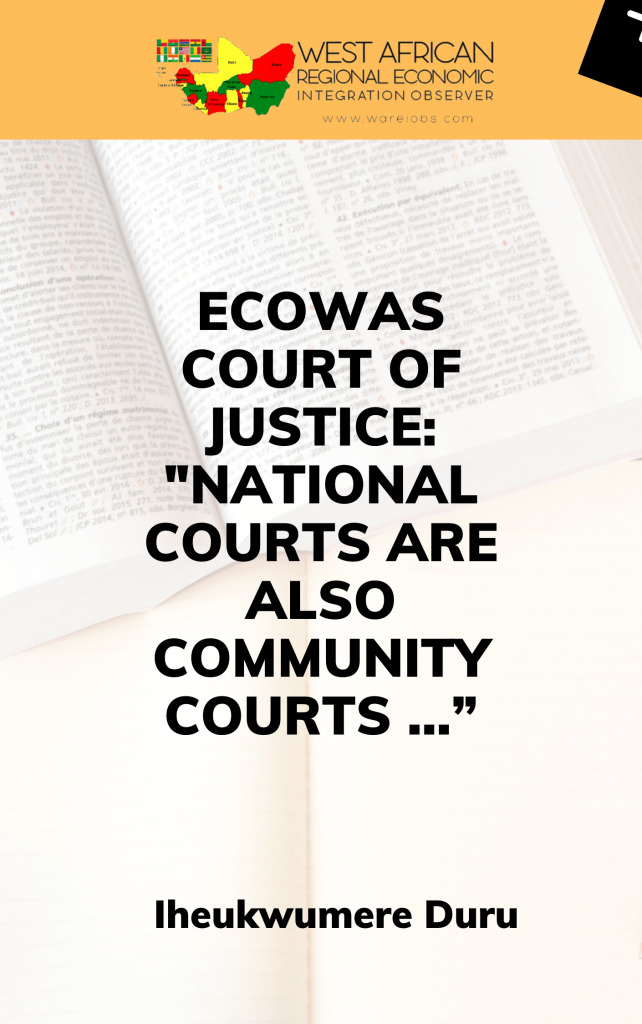
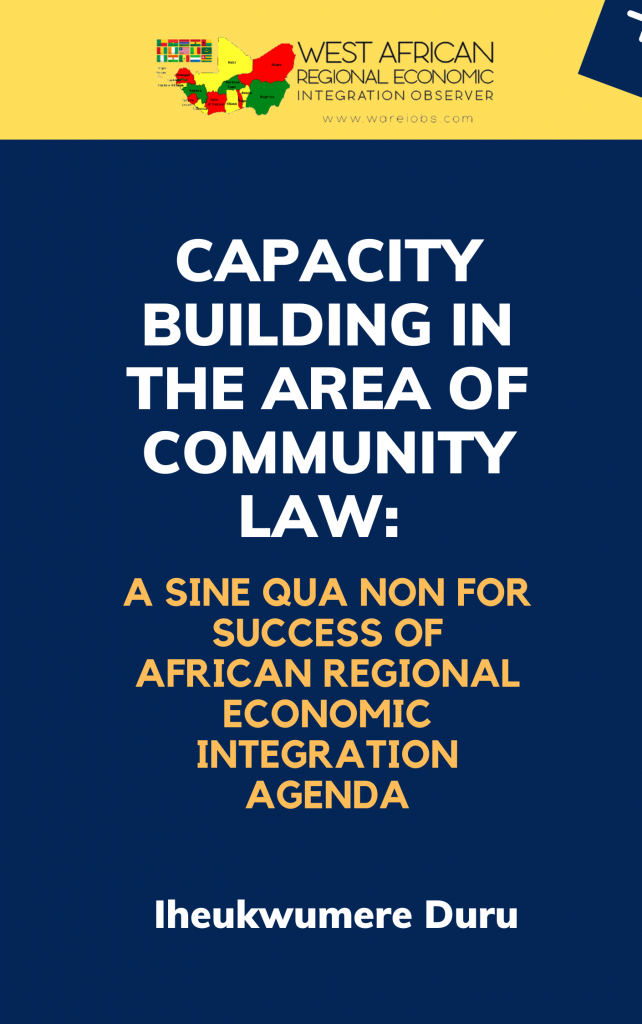
![The Role of National Courts and Tribunals in the Enforcement of Community Law [1]](https://wareiobs.com/wp-content/uploads/2021/05/White-Black-and-Red-Modern-Self-Help-Book-Cover-3-642x1024.png)
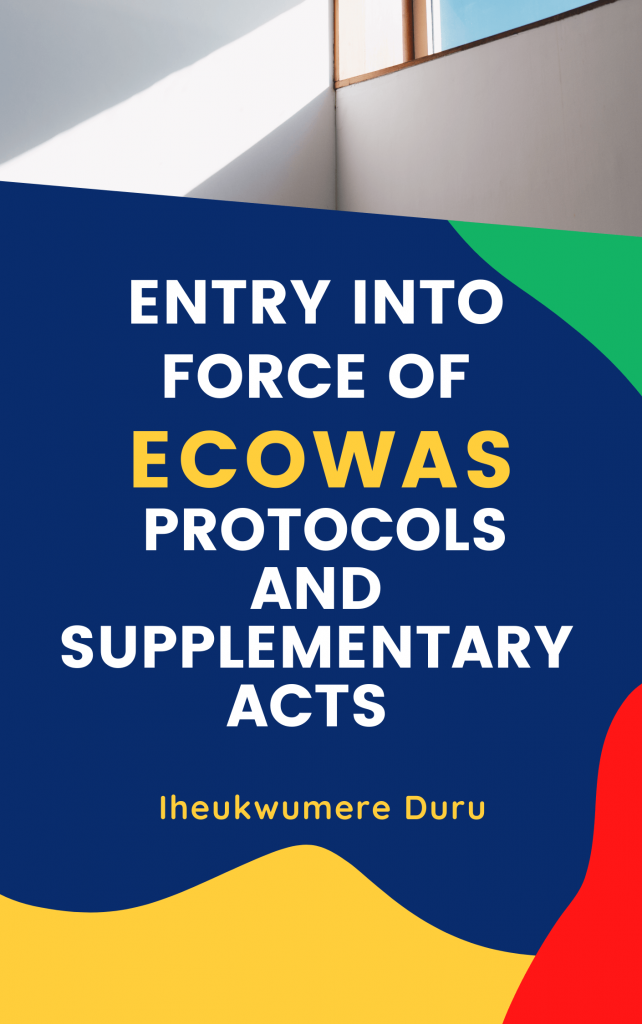
![The Role of National Courts and Tribunals in the Enforcement of Community Law [2]](https://wareiobs.com/wp-content/uploads/2021/05/The-Role-of-National-Courts-and-Tribunals-in-the-Enforcement-of-Community-Law-2-2-642x1024.png)
